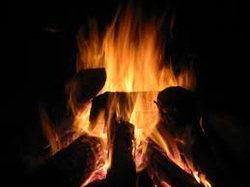
"The weather’s perfect for a bonfire, Mike. Why don’t you and Andy gather the brush pile and get things started?” my mother-in-law, Cindy, asked. “Twyla and I can run down to the store and get things for s’mores while Sophie cleans up.”
My husband grinned at his younger brother across the merrily set table. He took a sip of his beer and set it back down on the warm red tablecloth. “I don’t know, Andy, you think we can keep from burning any major buildings this time?”
The family laughed as Andy glared ruefully at his brother. I even managed a small, preoccupied smile. These jokes were old, safe, familiar. The humor was only by habit; the event Mike was referring to had happened eight, nine years ago. The bonfire that had gotten out of control was a family-famous event, but more so because it was the night Michael had stolen my heart. I held still as a brief memory flashed: the ruddy light flickering in his green eyes, the flush from the fire not quite concealing the blush on my sixteen year old cheeks as I solemnly realized I loved the boy watching me from the other side of the fire. The memory came with remembered heat, and the faintest tinge of pain; I shoved it aside.
The men, boys again, bounded outside to begin the preparations, and my mother and sister-in-law headed off to the store after checking the pantry cupboards.
“We’ll be back soon, Sophie,” Cindy called as she headed out the door. I cleared the table, still in the half daze I’d been spending most of my days in. I loaded the old dishes into the dishwasher, and then reached into the sink to wash the old cast iron pot that had been in the family since before my mother-in-law was born. I grasped its weight familiarly; I belonged to this family just as much as it did. My mind wandered as my inattentive hands washed the heirloom, and I gasped as a sudden sharp pain pierced my fingers and the dishwater blushed. The pain, a minor inconvenience, took me by surprise. Examining the cut, I realized it was only a slight nick despite its exuberant bleeding. I stuck the offending finger in my mouth without thinking, and looked out of the window above the sink.
I’d spent the past few months refusing to think too much, to feel too much, to see too much. I knew my husband’s patient understanding was waning, that his family’s doting tolerance was beginning to turn to questioning. And still, I could not bring myself to wake up. I wasn’t a silly little girl, and I knew my level-headedness was part of why Mike loved me as much as he did. I knew I was losing them, and I knew I was being irrational. The tiny slice on my finger throbbed, and I sucked on it absently as I watched my husband and his brother trying to light the fire outside. Andy, ever the inventive one, was experimenting on the not-quite-dry pile with dried grass, paper trash, even a starter log which refused to take hold. Mike stood there, my patient husband, crouched on the gravel with a long match and a small pile of bracken. Andy’s pile flared and I could hear his triumphant cry, but I heard almost as quickly Mike’s answering laugh as the flame died down to an ineffective smolder. I smiled again, this time without a touch of pain, and wandered outside to watch the two men.
“It’s too wet,” Andy said finally. He kicked at the side of the pile he’d been working on, then turned at the sound of his wife’s car headed up the drive. As he shambled forward to meet them, I walked to my husband’s side. He stilled, the way he had one day when we discovered a terrified, wounded kitten trapped underneath our porch. The image of his gentleness warmed me, and I crouched beside him.
“Do you think you can start it, or is it ruined after all?” I asked softly.
Mike looked at me steadily, and then smiled. “Watch.”
He leaned forward, blowing carefully on the smoldering pile below his bracken. The tiniest slip of a flame appeared, dimmed, then flickered strongly to life. With a crackling sound, the hungry fire jumped to life. The orangey light crawled over the piled wood, tinting the darkening air with the acrid, homey scent of burning. I gasped, and the merry little fire blazed in confidence as if it had started on a whim of its own, without being coaxed along by stronger hands. And I smiled again, a smile finally not tainted by the loss of my tiny daughter, but kindled by the promise of life and love. As the heat from the blaze grew, forcing us to take a step backwards, and then another, I knew the weight of my grief was fading. Mike wrapped his arms around me, and we watched the fire grow. LS
My husband grinned at his younger brother across the merrily set table. He took a sip of his beer and set it back down on the warm red tablecloth. “I don’t know, Andy, you think we can keep from burning any major buildings this time?”
The family laughed as Andy glared ruefully at his brother. I even managed a small, preoccupied smile. These jokes were old, safe, familiar. The humor was only by habit; the event Mike was referring to had happened eight, nine years ago. The bonfire that had gotten out of control was a family-famous event, but more so because it was the night Michael had stolen my heart. I held still as a brief memory flashed: the ruddy light flickering in his green eyes, the flush from the fire not quite concealing the blush on my sixteen year old cheeks as I solemnly realized I loved the boy watching me from the other side of the fire. The memory came with remembered heat, and the faintest tinge of pain; I shoved it aside.
The men, boys again, bounded outside to begin the preparations, and my mother and sister-in-law headed off to the store after checking the pantry cupboards.
“We’ll be back soon, Sophie,” Cindy called as she headed out the door. I cleared the table, still in the half daze I’d been spending most of my days in. I loaded the old dishes into the dishwasher, and then reached into the sink to wash the old cast iron pot that had been in the family since before my mother-in-law was born. I grasped its weight familiarly; I belonged to this family just as much as it did. My mind wandered as my inattentive hands washed the heirloom, and I gasped as a sudden sharp pain pierced my fingers and the dishwater blushed. The pain, a minor inconvenience, took me by surprise. Examining the cut, I realized it was only a slight nick despite its exuberant bleeding. I stuck the offending finger in my mouth without thinking, and looked out of the window above the sink.
I’d spent the past few months refusing to think too much, to feel too much, to see too much. I knew my husband’s patient understanding was waning, that his family’s doting tolerance was beginning to turn to questioning. And still, I could not bring myself to wake up. I wasn’t a silly little girl, and I knew my level-headedness was part of why Mike loved me as much as he did. I knew I was losing them, and I knew I was being irrational. The tiny slice on my finger throbbed, and I sucked on it absently as I watched my husband and his brother trying to light the fire outside. Andy, ever the inventive one, was experimenting on the not-quite-dry pile with dried grass, paper trash, even a starter log which refused to take hold. Mike stood there, my patient husband, crouched on the gravel with a long match and a small pile of bracken. Andy’s pile flared and I could hear his triumphant cry, but I heard almost as quickly Mike’s answering laugh as the flame died down to an ineffective smolder. I smiled again, this time without a touch of pain, and wandered outside to watch the two men.
“It’s too wet,” Andy said finally. He kicked at the side of the pile he’d been working on, then turned at the sound of his wife’s car headed up the drive. As he shambled forward to meet them, I walked to my husband’s side. He stilled, the way he had one day when we discovered a terrified, wounded kitten trapped underneath our porch. The image of his gentleness warmed me, and I crouched beside him.
“Do you think you can start it, or is it ruined after all?” I asked softly.
Mike looked at me steadily, and then smiled. “Watch.”
He leaned forward, blowing carefully on the smoldering pile below his bracken. The tiniest slip of a flame appeared, dimmed, then flickered strongly to life. With a crackling sound, the hungry fire jumped to life. The orangey light crawled over the piled wood, tinting the darkening air with the acrid, homey scent of burning. I gasped, and the merry little fire blazed in confidence as if it had started on a whim of its own, without being coaxed along by stronger hands. And I smiled again, a smile finally not tainted by the loss of my tiny daughter, but kindled by the promise of life and love. As the heat from the blaze grew, forcing us to take a step backwards, and then another, I knew the weight of my grief was fading. Mike wrapped his arms around me, and we watched the fire grow. LS
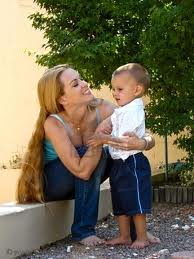
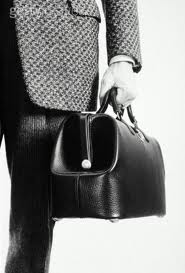

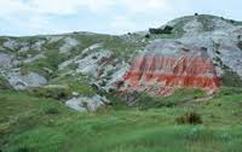
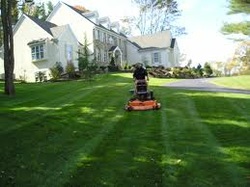
 RSS Feed
RSS Feed